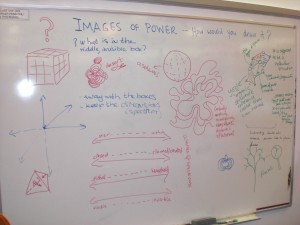Understanding power
 While power analysis is important, there is no one way of understanding power. The meanings of power are diverse and often contentious.
While power analysis is important, there is no one way of understanding power. The meanings of power are diverse and often contentious.
Some see power as held by actors, some of whom are powerful while others are relatively powerless. Others see it as more pervasive, embodied in a web of relationships, behaviour, social norms and discourses which affect everyone, but which no single actor holds. Some see power as a ‘zero-sum’ concept – to gain power for one set of actors means that others must give up some power. Since rarely do the powerful give up their power easily, this often involves conflict and ‘power struggle.’ Others see power as more fluid and accumulative than as a finite resource – it can be used, shared or created by actors and their networks in many multiple ways. Some see power as a ‘negative’ trait – to hold power is to exercise control over others. Others see power as about capacity and agency to be wielded for positive action.
Power is also often used with other descriptive words, for example, here we use the terms ‘power over’, ‘power to’, ‘power within’, and ‘power with’. Read more about these ‘expressions of power‘.
Often power is thought of as a form of control of one person or group over others. In this sense ‘power over’ refers to the ability of relatively powerful actors’ action to affect the actions and thought of the relatively powerless. But power can also be used in a more positive sense, referring to the power to bring about desired change in our lives or those of others. In this sense ‘power to’ refers to the capacity to act – to exercise agency and to realise the potential of rights, citizenship or voice.
‘Power within’ refers to gaining the sense of self-identity, confidence and awareness that is a pre-condition for action. ‘Power with’ refers to the synergy which can emerge through partnerships and collaboration with others, or through processes of collective action and alliance building.
These concepts have been developed over the years by a number of writers and in a number of different ways. For more information on these concepts go to other approaches to power. There are also a number of useful short handouts which help us understand these terms, see the related resources section of this page.

